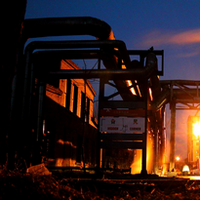On Oct. 1, the People's Republic of China celebrated the 60th anniversary of its founding, most notably with an air show and military parade along Beijing's Orwellian-sounding Avenue of Eternal Peace. The event showcased China's arsenal of indigenously made fighter aircraft, tanks and newer-generation Dongfeng missiles, capable of delivering nuclear warheads to targets over 11,000 kilometers away. This was hardly the first time an authoritarian government has used a military review to impress its citizens and outside observers. And China has used non-martial events to display its national pride, confidence and strength. In many ways, last year's Beijing Olympics served the same function.
But the parade left little doubt that China, the 2009 version, is surely very different from the one Mao Zedong left behind when he died in 1976. Since 1979, its economy has been doubling in size every 10 years, and growth in 2009 will likely surpass 8 percent -- remarkable in the context of the current global environment. Obviously, economic strength underpins political and military power, and if current linear trends continue, the Chinese economy will surpass that of the U.S. in absolute size before the middle of this century.
But does that mean that China will inevitably become a genuine economic and military superpower -- the next East Asian success story, like Japan or South Korea, but on an unprecedented historical scale? Major economic and social problems stand in the way of such a scenario of China's continued rise. But while many analysts recognize that these problems exist, most tend to represent them as Beijing's "to do" list, reflecting the assumption that the PRC's leadership simply needs to identify the appropriate policy solutions and then implement them. But such an approach ignores the ways in which China's problems are structural and becoming worse, and why solving them without the prospect of enormous turmoil will be difficult and even unlikely.

